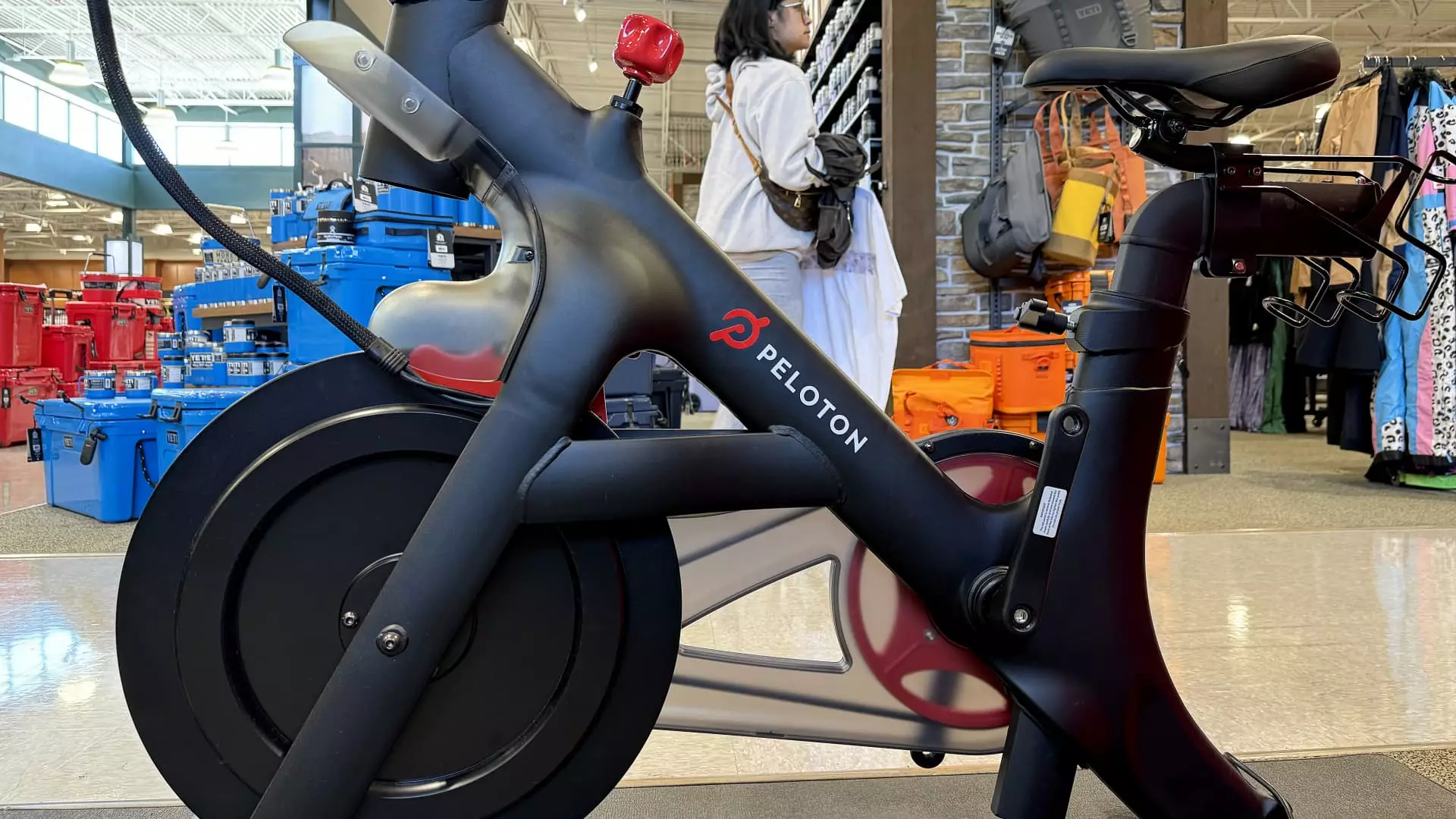Peloton has recently unveiled its new resale marketplace, Repowered, aiming to transform how fitness enthusiasts manage their unused equipment. This innovative platform seeks to leverage the plethora of dormant Peloton bikes and treadmills gathering dust in homes across America. While on the surface, this may seem like a smart pivot for a company facing waning subscription growth, the underlying motivations and potential pitfalls merit closer examination.
One cannot overlook the sheer volume of unused gym equipment; the rise of Peloton was meteoric, so too was the subsequent decline in user engagement. Introduced as a lifestyle brand, Peloton has worn itself thin, operating at the intersection of fitness and technology. A marketplace platform could indeed tap into a neglected resource, but it also raises questions about the sustainability of Peloton’s business model. Are they genuinely seeking to foster a community, or are they simply scavenging through a graveyard of unfulfilled fitness aspirations?
AI-Driven Pricing: Genius or Gimmick?
The usage of generative AI for pricing suggestions adds a futuristic flair to Repowered, positioning Peloton as a tech-savvy leader in the fitness industry. Sellers can rely on automated insights to gauge the fair market value of their equipment—but does this truly foster transparency? The fine line between advice and manipulation emerges, as Peloton will benefit financially through its cut of the sales price. It creates an interesting dynamic where sellers trust an algorithm that ultimately serves the company’s interest first and foremost.
Consumers are often wary of platforms that employ AI-driven pricing mechanisms, fearing they may be subjected to market rates less favorable than expected. Skepticism flourishes when companies apply digital nudging methods disguised as user empowerment. The reliance on technology here, while seen by some as a valuable enhancement, could also diminish the personal touch that makes transactions feel more human and relatable.
Marketplace Competition: The Stakes Are High
Peloton’s Repowered is positioned as a direct competitor to platforms like Facebook Marketplace and emerging startups like Trade My Stuff—each already doing well in the growing second-hand market. This competitive landscape adds complexities to Peloton’s strategy, as being a latecomer typically means entering a crowded space with established user networks. Competing against these platforms necessitates not just an enticing user experience, but also unique features that represent true value rather than just a thin veneer of innovation.
In many ways, Repowered can be seen as Peloton’s attempt to reclaim market ground lost to these competitors as customers increasingly turn to peer-to-peer exchanges. The company aims to provide a streamlined, trustworthy experience, but with trust comes vulnerability. If Repowered fails to deliver on its promises or offers less favorable conditions than existing players, it risks alienating both sellers and buyers.
Subscription Model Dilemma: The Crux of Peloton’s Strategy
Central to Peloton’s financial success is its subscription model, the bedrock of its revenue stream. However, the company’s claim that reselling used equipment could bring in new subscribers shifts the narrative in a troubling direction. By fostering a secondary market, Peloton is jeopardizing the subscription dependency that has anchored its business model since inception.
In theory, enticing customers with discounted activation fees for used bikes creates an apparent win-win; yet it could simultaneously dilute the value of the Peloton experience. What does it mean for the brand if potential new members come primarily through used equipment sales, rather than purchasing new machines alongside a subscription? Peloton’s future depends on reestablishing its allure as a premium, exclusive fitness provider, rather than the go-to for economical second-hand exercise equipment.
Redefining Connections: The Community’s Fate
Ultimately, Repowered represents more than just a marketplace; it’s an attempt to redefine Peloton’s relationship with its community of users. While there’s a tangible opportunity to foster connections between buyers and sellers, the transformation is fraught with challenges. If Peloton can manage to interface well with its users through Repowered, it may channel the passion behind its fitness community into a sustainable business avenue. If it falters, however, it risks becoming akin to its neglected equipment—a once-promising venture collecting dust in a corner.

